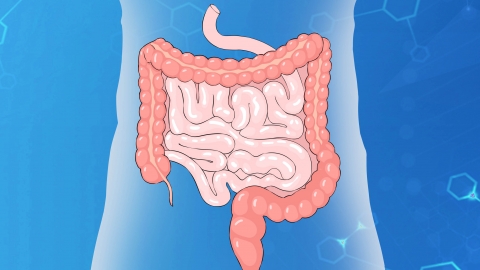What should be done if rectal cancer recurs after surgery?
In general, recurrence after rectal cancer surgery may be caused by factors such as decreased immunity, inadequate postoperative care, residual tumor cells, chronic intestinal inflammation, and poor nutritional status. It is recommended to seek medical attention promptly, identify the underlying cause, and undergo comprehensive treatment under a doctor's guidance. The specific analysis is as follows:

1. Decreased immunity: Staying up late and anxiety after surgery can weaken the immune system, making it unable to suppress the proliferation of residual tumor cells. Maintain regular sleep patterns and avoid staying up late. Engage in 30 minutes of mild daily exercise, such as Tai Chi, stabilize emotions, and seek psychological counseling when necessary to relieve stress.
2. Inadequate postoperative care: Failure to undergo regular follow-up examinations or improper diet increases the risk of tumor recurrence. Strictly adhere to medical advice by having colonoscopies and tumor marker tests every 3–6 months. Follow a low-fat, high-protein diet and avoid spicy, irritating, or preserved foods.
3. Residual tumor cells: Microscopic tumor lesions not completely removed during surgery may gradually proliferate and lead to recurrence. If the recurrence is localized, a second tumor resection may be performed. After surgery, follow medical instructions to use adjuvant medications such as capecitabine tablets, oxaliplatin injection, and fluorouracil injection.
4. Chronic intestinal inflammatory stimulation: Long-term inflammation from conditions like ulcerative colitis chronically irritates the intestinal mucosa, promoting tumor recurrence. Take anti-inflammatory medications such as mesalazine enteric-coated tablets, sulfasalazine enteric-coated tablets, or olsalazine sodium capsules as prescribed to control inflammation and reduce mucosal irritation.
5. Poor nutritional status: Postoperative malnutrition reduces the body’s healing capacity and increases the difficulty of treating recurrence. Adjust the diet to include more high-quality protein sources such as eggs, lean meat, and soy products. When necessary, use enteral nutritional supplements under medical supervision to enhance the body’s tolerance to treatment.
In daily life, patients should quit smoking and alcohol consumption and avoid exposure to carcinogenic factors. Maintain regular bowel movements by consuming fresh fruits and vegetables rich in dietary fiber to prevent constipation and reduce intestinal strain. Family members should provide psychological support to help patients build confidence in treatment and actively cooperate with ongoing therapies.





